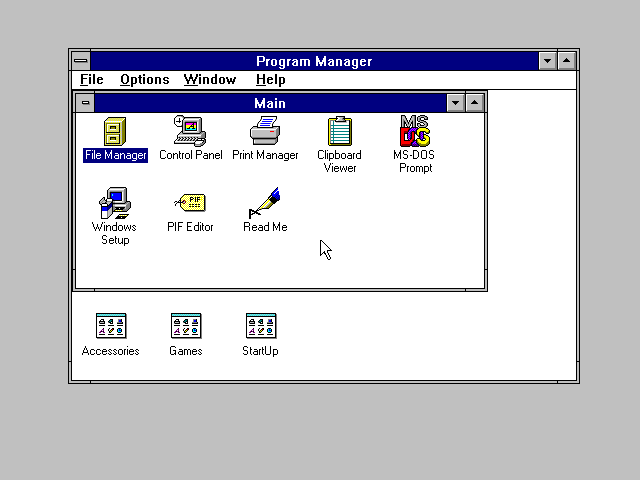No, I didn't say pocket protector. Now I know the prototypes for this have been around for a while, but if you want all the geek cred a pocket device can muster, this might be the holiday toy for the bulging-wallet impaired. I wonder if comes with a velcro strip to secure it in case of clumsy table bumpers. For somewhere between $500-600 you can be the coolest cat on your block or you can use your neighbor's wall as a screen.
Seemingly the most generic stereotype of the "geek" from the perspective of the outside world is still something more akin to the leads from Revenge of the Nerds than your average work-a-day Joe Six Pack or Joe the Plumber, but, trust me, either Joe may very well be harboring an inner-geek.
While the vast populace of web-savvy wingnuts may or may not have achieved "geek" status, I'm quite prepared to take the technology aspect out of the definition. I'm offering up, for consideration, that the path to geekdom is in direct relation with the continued refining of the generic to the specific. Instead of offering up a sample set that involves technology, let's follow a parallel structure to refine the map to the inner geek of fishing. Just as a quick disclaimer, I know absolutely NOTHING about fishing, but that I can place these steps in the following should show the commonalities within the geek archetype regardless of the field.
Step One (Hobbyist): The casual fishing or "outdoorsperson" picks up the occasional issue of Field & Stream or Outdoor Life to decide where a good corporate fishing retreat of week-long booze-up with friends might happen. Sure, they have a interest/hobby in a wide variety of wildlife-oriented issues, but they have as much geek level cred in fishing as one who reads Rolling Stone would have with music. And while someone who eventually becomes a fishing geek may one day reach back to Field & Stream as a fond memory, it will never hold the credibility it once did. The hobbyist views nature as art and uses their reading to enhance their perspective.
Step Two (Threshold Geek): Moves into fishing-specific magazines... kinda like moving from Wired's tech esoterica to a PC or Mac specific title. The threshold fishing geek doesn't care much for hunting or hiking or spelunking, but wants to focus on fishing and only fishing. They don't want one article every three months on rod and reel advancements, but several articles every month. They crave full page ads for mail order lure houses in Minnesota that they make lists from, and copiously circle and highlight, but never buy anything. They have growing frustrations in trying to get friends to go on weekend trips to stand on rocky shores or in hip-waders with the promise of many beers to be consumed while fishing or each night. The threshold geek views fishing as an art that they admit a certainly lack of facility with, but are gaining an appreciation of. Think of the weekend golfer that knows they will never have the time to get as good as they'd like to be, but will watch endless hours of golf tournaments and relish being able to guess club choice before the announcer calls it.
Step Three (Geek): To move into official geek status, the fishing enthusiast has to make a choice (dive in so to speak) as the sub-genre of fishing they wish to specialize in: freshwater, saltwater, boat, spear, ice or fly. The distinguishing feature between the geek and the ubergeek lies in the geeks ability to remain open to the possibility of subgenres beyond the geek level. For instance, the flyfishing fan, having committed to all things fly, has a cornucopia of rod and fly choices, location scouting, outfitting, and the art of fly creation. The geek has views flyfishing as an art that they are willing to commit to, but are starting to learn that the more they get into, the more they have to learn. They have invented drinking games to the impracticalities of A River Runs Through It, but are willing to adopt a zen-like quality when talking about their rods becoming extension of their bodies. (You all have very sick minds!)
Step Four (Ubergeek): Can talk about bass fishing for days on end - and do! They know every sub-classification of the bass family, what they eat, where they live and can identify sex by scale patterns. They have refined rod and reel research down to second nature (to even talk about such things is a step down for them unless they've defined a holy grail rod handmade by a craftsman in Sapporo that costs as much as the family van and can only be discussed via online forums with the six other people in North America who know enough to speak of such things). They are plenty qualified to write for Bassmaster magazine but to do so they would have to lower themselves to keep up with the rest of fishing world. They would rather devote their time to the refined aspects of bass fishing than actually fishing. The ubergeek views bass fishing as a lifestyle and a venue for self-improvement. They see the disciplines involved in fishing in every aspect of their daily lives. Their boat comes outrigged with everything necessary, but is nowhere near as decked out as the boat of a bass boat uber geek who belongs to a slightly different subset. They belong to several fishing clubs (online and in the community). They will occasionally deign to come down from the mountain to consort with regular geeks. They consider deep sea fishers "elitist assholes" and flyfishers "namby-pamby girly-men". They think ice fishers are just "outworldly whackjobs" and secretly dream of the day they can move to an isolated Northern Canadian cabin with a 1653 first edition of Izaak Walton's The Compleat Angler: or the Comtemplative Man's Recreation: Being a Discourse of Rivers, Fishponds, Fish and Fishing Not Unworthy the Perusal of Most Anglers.
Of course there can be several subcategories within the Four Steps of Geekdom, but the most important thing to recognize is that geeks are not bound to technology. Anyone who can re-associate this fishing paradigm to any other topic knows that everyone's a little bit geeky, and some of us more than most.

I know that most people usually spend at least some time in gas stations these days thinking about how many oil company execs they can drown in the still oil-laden waters of Alaska, but after you faint and awake, looking up, you may find that design did not leave the petrol pumps behind.
Please check out my latest blog/podcasting escapades with my good friend Mike Vardy from www.effingthedog.com.
At DyscultureD we skewer the latest pop culture happenings north and south of “The 49th Parallel” - including movies, television, music, the internet, gadgets and much more. Feel free to explore the site and the podcast as we turn pop culture upside down to a state we like to call…DyscultureD.


I don't care what anyone says, I need Xzibit to pimp my ride out to look like this... okay... if he wants to add a few plasma screens, spinners, and turntables that's cool too.


In the past I have been anything but an apoligist for the tech world's advancements. I crave some of the visions of the future that I grew up with in sci-fi films and televisions. From a teleporter to a self-drive aircar. From a replicator or holodeck to an omnipresent mainframe that serves the needs of humanity... of course somehow these scenarios inevitably turn out bad.
The backbone for all such technology demands an immense mainframe that contains, if not the total, at least a large chunk of academic, social and personal information to dole out upon request. And while I know that, in most dystopian film plots, the archetypal consequence for individuals giving up their knowledge often ends badly, there is a lingering attraction to a tool that at command, whim and request can produce information and content that is uniquely customized to a user within a specific environment.
The first step to such a system has its nascent development in cloud computing, and while part of me is ready to release my kite into the cummulus, another part of me is remembering Twitter's Fail Whale and 404 errors of days gone by.
There is inherent risk that's greater than someone hacking Amazon to steal credit card information or a government website to lift social security numbers. Cloud computing demands that beyond the day to day information necessary to run our lives, we also commit our memory - i.e. writing, pictures, music and emails. And while many of us have copies of pictures in Flickr and stream music from last.fm, are we ready to commit the sole copies of such things to the cloud?
Being a victim of credit card fraud can range from annoying to devastating, but imagine a future where a system crash wipes out the only existing images of deceased loved ones or a child's first birthday. When do we reach that level of trust, not with certain things, but with EVERYTHING? For the skynet to work its magic, and be all it can be, it needs such information. Google, and other Web 2.0 in-browser software, would have us move all of our documents and spreadsheets into the cloud. Through blogs, many people have given up their creativity to the cloud... after all, how many of us keep backups of everything we post? Flickr has, what I'm sure, are the sole copies of at least some visual records of people and places and events. The news is moving from paper to html to rss to xml and soon hard copies will be a thing of the past.
Make no mistake. The sky is getting bigger. The clouds are growing in size and getting more numerous. The sun, however, is becoming infrequent and I can feel a storm coming on. I don't know when the first PCs and Macs will ship without hard drives, but I think we're within ten years. I don't know how soon after that a lightning strike will erase all visual records of someone's Uncle Owen or Aunt Beru, but I'm thinking we're within eleven years. I don't know when all high speed networking will be wireless and paid for through taxes, but I can see it through the rain.
I do know this. When I have to suffer a blackout, I feel, sadly, lost without a TV or my computer. My content has disappeared and now I have to spend time reading books, which, in a cloud world, will soon not exist off of my computer... well, at least I'll be okay until the batteries on my Kindle 2010 run out and my iPod nano version 10 (which has been broken to countersink into my forearm and run off of bio-electical energy) shorts out my nervous system. I suppose I can pick up a piece of charcoal from the barbeque and scratch some renderings of the circling wildlife that's coming back to claim a world where all knowledge has been shorted out by a failed surge protector.
While I love the concept of cloud computing, it's going to take a lot of convincing to get me to let go of the kite string that keeps my information grounded.








